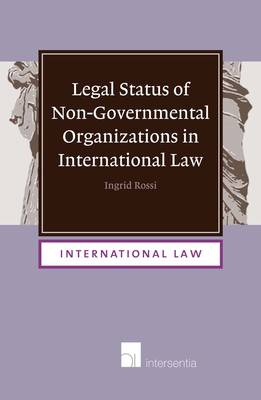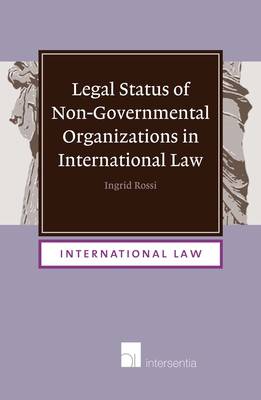
- Afhalen na 1 uur in een winkel met voorraad
- Gratis thuislevering in België vanaf € 30
- Ruim aanbod met 7 miljoen producten
- Afhalen na 1 uur in een winkel met voorraad
- Gratis thuislevering in België vanaf € 30
- Ruim aanbod met 7 miljoen producten
Zoeken
€ 109,00
+ 218 punten
Omschrijving
Non-Governmental Organizations (NGOs) play an increasingly important role, not only as international political actors, but also as organizations involved in the creation, implementation, and enforcement of international law. Have these organizations acquired an international status equivalent to that of States or international governmental organizations? This question is difficult to answer because there is a disparity between the reality of international NGO involvement and impact, and the international legal framework regulating this participation. Until now, NGO rules have developed organically within each organization, treaty body, or international court. There is no unique set of international rules referring to NGOs as a category. In this context, this book surveys and examines the international provisions that regulate NGO action at the international level, in order to reach a conclusion on the legal status of NGOs, on how this status should evolve, and on how NGO accountability should be approached at the international level.
Specificaties
Betrokkenen
- Auteur(s):
- Uitgeverij:
Inhoud
- Aantal bladzijden:
- 428
- Taal:
- Engels
- Reeks:
- Reeksnummer:
- nr. 5
Eigenschappen
- Productcode (EAN):
- 9789400000643
- Verschijningsdatum:
- 24/09/2010
- Uitvoering:
- Hardcover
- Formaat:
- Genaaid
- Afmetingen:
- 152 mm x 229 mm
- Gewicht:
- 925 g

Alleen bij Standaard Boekhandel
+ 218 punten op je klantenkaart van Standaard Boekhandel
Beoordelingen
We publiceren alleen reviews die voldoen aan de voorwaarden voor reviews. Bekijk onze voorwaarden voor reviews.











